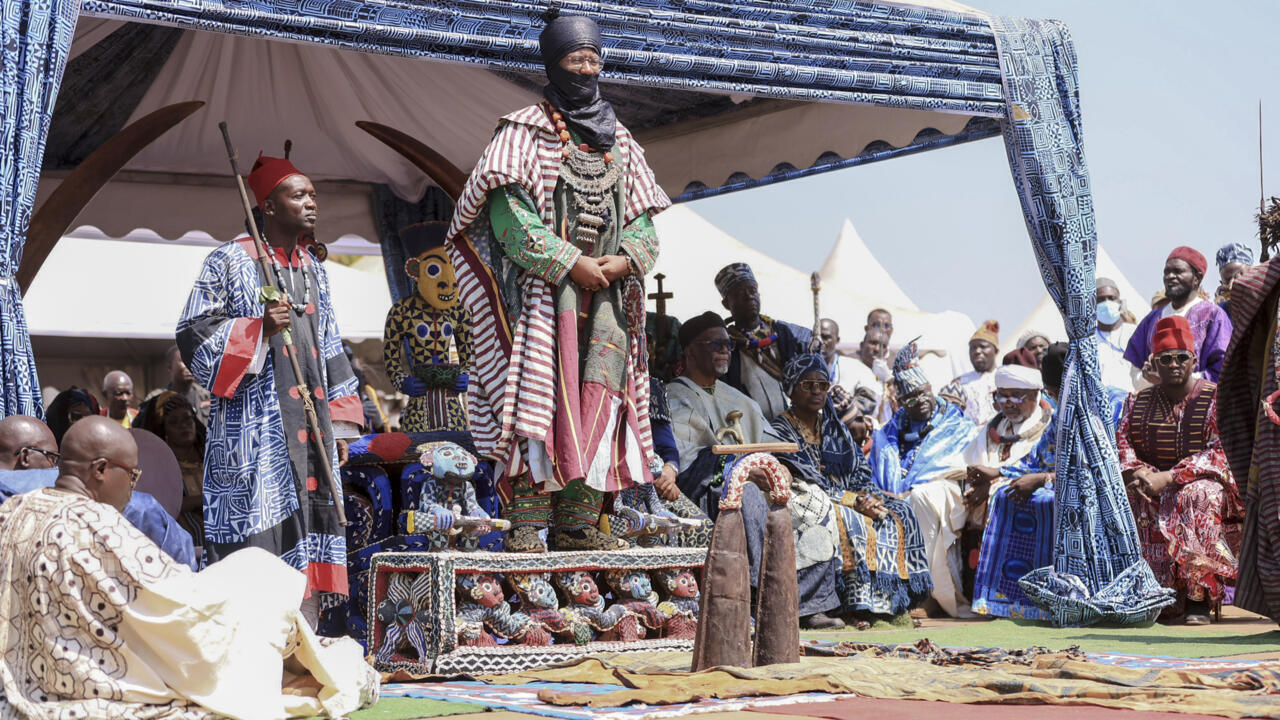The 20th king of the Bamoun people, Mouhammad Nabil Mfourifoum Mbombo Njoya, stood up from his ornate throne – a replica of the original, now at a German museum – for the ancient ritual to get under way. The nearly 600-year-old tradition sees him put on public trial over his governance – with local chiefs reading out indictments destined to put his popularity to the test.
The tradition is part of a set of rituals taking place over a week in a bid to promote dialogue, harmony and peace. The ceremony is a first for Mbombo Njoya, 31, who took over the throne after his father died in 2021. If deemed to have failed, the monarch could be fined or removed from office. But if he succeeds, he is granted a new mandate and allegiance.
Tourists and officials last week flocked to the remote, grassy region of the West African country to attend Nguon, a set of royal rituals that date back to 1384, when the kingdom was founded. The rites, which are followed by celebrations, had not taken place in six years due to the Covid-19 pandemic and other factors, but were recognised in December 2023 by UNESCO as intangible cultural heritage. The Bamoun territory, which is home to the ethnic group of the same name, is one of the oldest traditional kingdoms in sub-Saharan Africa.
Constituents of the brotherhood shrouded in secrecy planted their spears into the ground as the young ruler braced for his people’s opinions and grievances. “Your Majesty, the people are very preoccupied with the dilapidation of the kingdom’s property assets,” a Bamoun lawmaker told his monarch before the attentive crowd.
But the king survived the session and earned the approval of his people. Warriors and members of the royal guard fired their rifles into the air in celebration.
“I really enjoyed how there is this role reversal and he is judged by his people. I thought it was just going to be a pretend judgment but the judgment was really severe, I was surprised,” said Roly Allen, a 46-year-old businessman who travelled from London to attend.
“I am very proud to be Bamoun, these are moments that allow us to learn about our culture and pass it on to our children,” said Amadou Njoya, a 21-year-old native of Foumban.
Cameroon’s 270 ethnic groups, with various customs and languages, are organised into more than 80 kingdoms and sultanates. The importance of customary law and the sense of belonging to these chiefdoms have withstood the test of time and remain key parts of the lives of many of Cameroon’s 28 million people.


